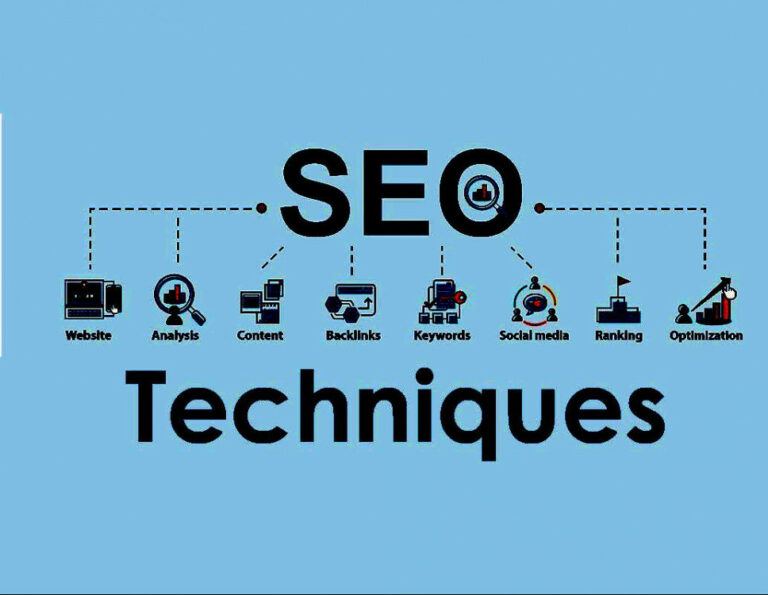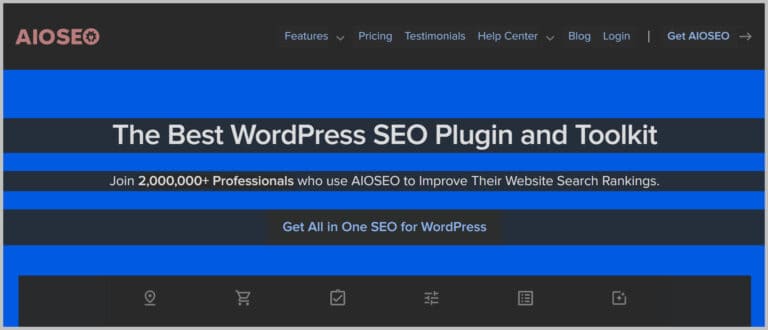Local SEO For Small Businesses
Local SEO For Small Businesses
One effective technique for small enterprises is local SEO. By improving your internet visibility, local SEO makes it easier for local clients to find and use your services.
From Google My Business to localized content strategies, local SEO ensures your business appears where it matters most.
This article explores actionable tips to help your small business thrive in today’s competitive digital landscape.
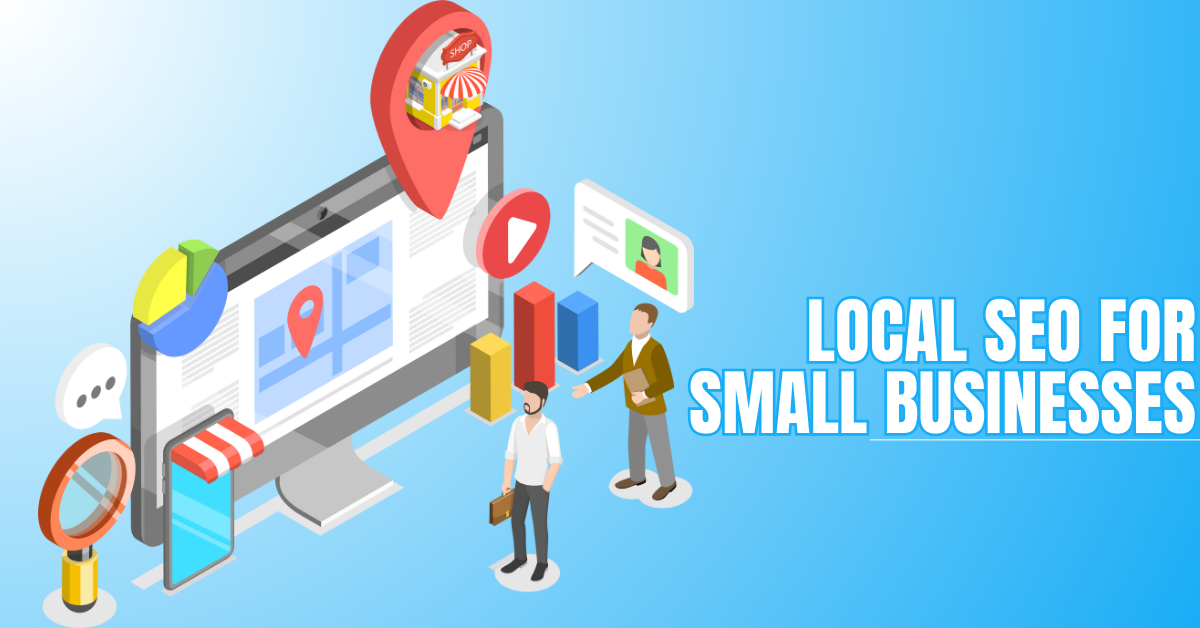
What Is Local SEO?
Optimize your online presence with local SEO (Search Engine Optimization) to draw in more business from relevant local searches.
It focuses on ensuring your business appears in search results when people nearby search for products or services you offer.
Key elements include claiming and optimizing your Google My Business (GMB) profile, using location-specific keywords, and acquiring customer reviews.
Want to Start Making Money Online?
Try My #1 Recommendation Program!
The “local pack,” a highlighted area of search results that displays the top local businesses along with their ratings and locations, is where local SEO helps companies to show up.
In addition to GMB, local SEO includes tactics like generating localized content, ensuring your website loads quickly and is mobile-friendly, and constructing citations—mentions of your company name, address, and phone number—on directories.
The importance of local SEO has grown with the rise of mobile and voice searches, as consumers increasingly rely on nearby options for quick purchases or services.
Effective local SEO helps small businesses stand out, driving traffic, building trust, and increasing sales in their local markets.
Why Local SEO Is Important For Small Businesses
To reach their target audience, boost exposure, and stay competitive in a market that is growing more and more digital, small businesses require local SEO. Here’s why:

1. Improved Online Foot Traffic
Optimizing your Google Business Profile and local listings makes it easier for customers to find your business. Accurate information like address, hours, and photos can attract nearby customers directly to your store, boosting foot traffic and online engagement.
2. Higher Conversion Rates
Local searches often indicate high purchase intent, with 78% of local mobile searches leading to a purchase. Small businesses can capture these ready-to-buy customers by appearing in local search results, turning searches into sales and making local SEO profitable.
3. Cost-Effective Marketing Strategy
Local SEO is an affordable alternative to traditional advertising for targeting specific audiences in your community. With proper optimization, small businesses can improve their visibility and connect with potential customers without overspending, ensuring a higher return on investment.
4. Building Trust And Credibility
Accurate business information and positive reviews on local directories build trust among customers. When they encounter trustworthy information and positive reviews about your company, they are more inclined to prefer your services over those of competitors.

5. Compete With Larger Competitors
Small businesses can dominate local search results by focusing on hyper-local audiences. Unlike larger companies targeting broader markets, local SEO allows small businesses to connect with nearby customers, creating opportunities to outperform bigger competitors in the local market.
Guide To Local Business SEO
This thorough guide to local business SEO (search engine optimization) will help your company grow, draw in more clients, and show up well in local search results:
1. Optimize Your Google Business Profile (GBP)
Accurate Information
Verify that all platforms have the same name, address, phone number (NAP), website URL, and operating hours. This consistency boosts your credibility and improves your local SEO ranking, helping customers easily find and trust your business online and in person.
Categories And Services
Describe your business and its offerings using the most relevant categories. List all services and products, providing detailed descriptions where possible.
This will help search engines and customers understand your business better, improving its visibility for relevant local searches.
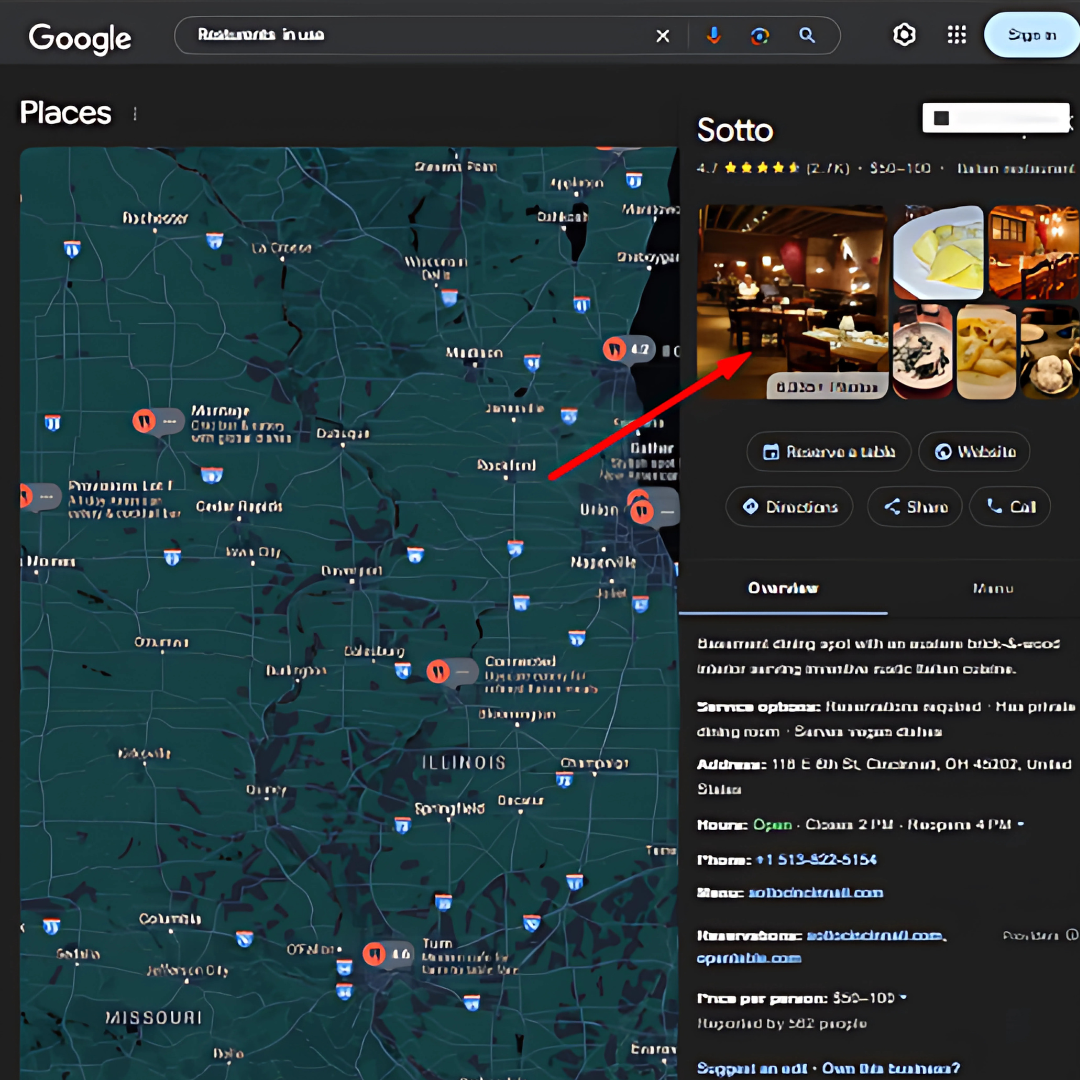
Add Photos
Upload high-quality images of your business, products, team, and services. Pictures create a strong first impression, increase engagement, and build trust with potential customers. Regularly updating images keeps your profile fresh and relevant, making it more appealing to local audiences.
2. Optimize For Local Keywords
Use Keyword Tools
Utilize keyword research tools to identify terms your local audience frequently searches for, such as “best pizza in Chicago.”
Focus on high-intent, location-specific keywords to attract nearby customers, ensuring your content aligns with their needs and search habits.
Want to Find Out How To Start Your Home-Based Business?
Try My #1 Recommendation Platform!
Include these keywords naturally in the following:
- Website pages (homepage, about, services).
- Blog posts.
- Meta descriptions and titles.
- Alt text for images.
3. Create Location-Specific Content
Publishing blogs or articles about local events and area-specific tips is an effective way for small businesses to leverage local SEO.
This boosts visibility and engagement with the local community.
Topics like “5 Best Summer Activities Near [Your Location]” or “How to Find the Best [Your Service] in [City/Neighborhood]” attract local readers, increasing visibility and showcasing your connection to the community.
4. Build Local Citations
List Your Business On Local Directories
Register your business on Yelp, Bing Places, Yellow Pages, and industry-specific directories. These listings improve local search rankings and help customers find you easily, especially when searching for businesses within your niche or service area.
Avoid Duplicate Or Incorrect Listings
Check for duplicate or outdated business listings and remove or update them promptly. Duplicate entries can confuse customers and lower credibility, while incorrect information might lead to lost opportunities and frustrated customers.
5. Use Schema Markup
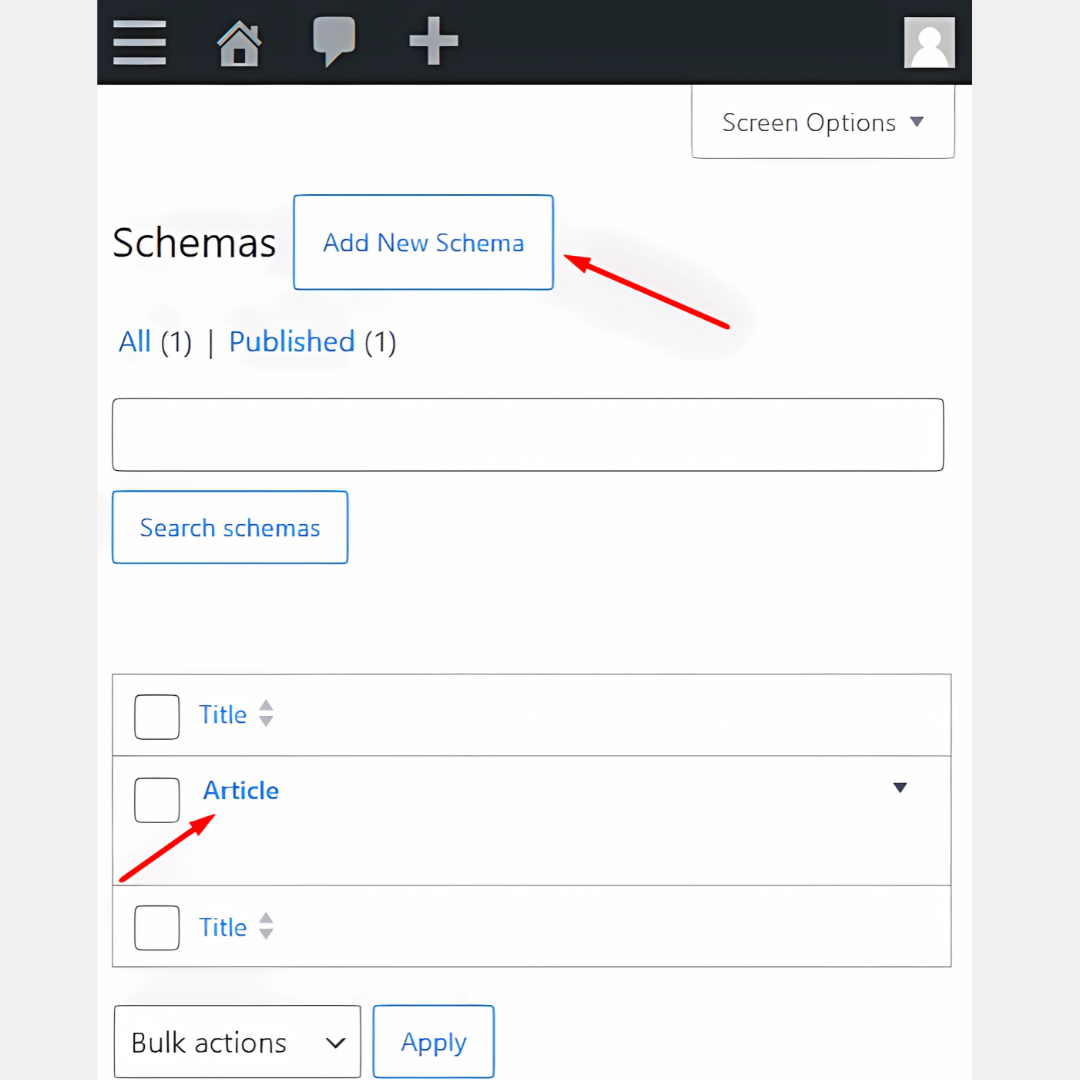
Implement Local Business Schema
Add structured data markup (JSON-LD format) to your website's code to help search engines better understand your business information.
This will increase your chances of appearing in local search results and featured snippets, improve your visibility, and advance local SEO.
Include Key Business Information
Ensure the schema markup includes your business’s address, phone number, type, opening hours, and customer reviews. This helps search engines present accurate and relevant business information in local search results, improving your business’s credibility.
Are You Tired Of Scams?
Want to Start Making Money Online?
6. Mobile Optimization
A Mobile-Friendly Website Is Essential
Mobile-friendliness is a key aspect of local SEO for small businesses. It improves user experience and boosts rankings in local search results.
A mobile-friendly website that enhances local traffic can improve user experience, increase engagement, and improve rankings in local search results.
Use Responsive Design
This ensures a seamless browsing experience on smartphones and tablets, enhancing usability and satisfaction. It may also benefit your search engine rankings and user retention.
7. Focus On Backlinks
Collaborate With Local Businesses
Partner with local entities to earn backlinks that boost your website's authority. Working with bloggers and influencers can help spread your message, increase online visibility, and drive local traffic through quality inbound links from trusted sources.
Sponsor Or Participate In Community Events
Engaging in community events or sponsorships provides an excellent opportunity to get mentions and backlinks from local news sites or event directories.
These backlinks enhance your local SEO, increase brand visibility, and position your business as an active, community-focused entity.
8. Use Social Media For Local Engagement
Regularly Post Updates, Promotions, And Events
Keep your audience engaged by sharing timely social media updates, special promotions, and local events. This helps maintain visibility and promotes a sense of community involvement, encouraging local customers to engage with your business.
Use Local Hashtags
Boost discoverability using location-specific hashtags such as #NYCPlumber or #AustinBakery. These hashtags help connect your content with local users, ensuring potential customers can easily find your business when searching for services in your area.
9. Monitor And Improve Your Online Reputation
Mastering Review Responses
Quickly respond to reviews to let clients know you appreciate their input. Respond professionally, expressing appreciation for positive and negative comments, demonstrating your commitment to customer service and fostering trust with potential clients.
Want To Learn How To Create Your Own Website And Online Business?
Try My #1 Recommendation Training And Hosting Platform!
Address Negative Feedback Constructively
Addressing negative feedback is essential to local SEO for small businesses. It helps build trust and improve your online reputation. This strategy can show your commitment to client satisfaction and transform bad encounters into opportunities for growth.
10. Track Results And Adjust
Maximizing Performance With Analytics Tools
Use Performance Monitoring Tools Like GBP Insights, Google Analytics, and Google Search Console. Leverage these tools to track your website’s performance, user behaviour, and local search visibility. Regularly check for insights into traffic sources, bounce rates, and customer interactions to guide optimization efforts.
![]()
Tracking Key Metrics For SEO Success
Focus on metrics such as Traffic, Conversions, Keyword Rankings, and Click-Through Rates. Examine essential KPIs to determine the effectiveness of your local SEO campaign.
Pay close attention to website traffic, conversion rates, keyword performance, and CTR to identify areas for improvement and capitalize on successful tactics.
Common Mistakes To Avoid In Local SEO
Here are some common mistakes to avoid in local SEO, along with tips for better practices:
1. Ignoring Google Business Profile (GBP) Optimization
Mistake
Many businesses neglect to claim or properly verify their Google Business Profile (GBP). This results in incomplete information and missed opportunities for ranking higher in local search results, reducing visibility to potential customers.
Solution
Consistency in business details and high-quality images are essential for local SEO for small businesses. These help improve visibility and customer engagement. Adding clear, high-quality photos also enhances customer trust and encourages visits.

2. Inconsistent NAP Information
Mistake
Inconsistent NAP information confuses search engines and customers, lowering local rankings and potentially causing customer frustration. Discrepancies in business details also make it harder to establish trust and credibility.
Solution
Ensure that your business name, address, and phone number are identical across all online platforms. Consistent NAP details help improve local search rankings, enhance credibility, and make it easier for customers to find and contact your business.
3. Lack Of Local Keywords
Mistake
Not using local keywords in your content and metadata limits your visibility in local search results. This oversight prevents potential customers from finding your business when they search for services or products in your area.
Solution
Research relevant local keywords, such as city—or neighbourhood-specific terms, and incorporate them into your website content, blog posts, and GBP descriptions. In addition to ensuring that your company shows up in location-based searches, this will raise your local search ranks.
4. Not Building Local Backlinks
Mistake
Focusing on local backlinks is a vital strategy for small businesses in local SEO. They enhance search engine rankings and establish credibility within the community.
Backlinks from reputable local websites improve local SEO by letting search engines know that your business is active and trustworthy in your community.
Solution
Building relationships with local businesses and community events can earn you high-quality backlinks from local sources. These backlinks increase your credibility, drive local traffic, and boost your website’s authority in local search results.

5. Not Encouraging Reviews
Mistake
Ignoring the importance of customer reviews can hurt your local SEO. Search engines consider positive reviews a ranking factor, and a lack of reviews can signal to search engines that your business isn't popular or trustworthy.
Solution
Actively encourage satisfied customers to leave reviews on platforms like Google and Yelp. Respond to reviews as soon as possible to show appreciation for client feedback. Positive reviews help build trust, increase visibility, and improve your ranking in local search results.
Assessing Your Local SEO Efforts' Success
Local SEO is crucial for businesses targeting customers in specific geographic areas. Measuring the success of local SEO for small businesses is essential to understand the effectiveness of your strategy and make data-driven improvements. Here’s a comprehensive guide to track and evaluate your efforts:
1. Track Local Search Rankings
Use tools like Google Business Profile Insights or third-party rank trackers to monitor your position for local keywords. Key metrics include:
- Rankings for location-specific keywords (e.g., “best tacos in the Bay Area”).
- Placement in the Local Pack (the top 3 listings in Google Maps).
2. Analyze Website Traffic
Monitor your website traffic using Google Analytics or similar platforms:
- Check the “Acquisition” section to see how much traffic comes from organic searches.
- Segment by location to ensure local audiences are reaching your site.
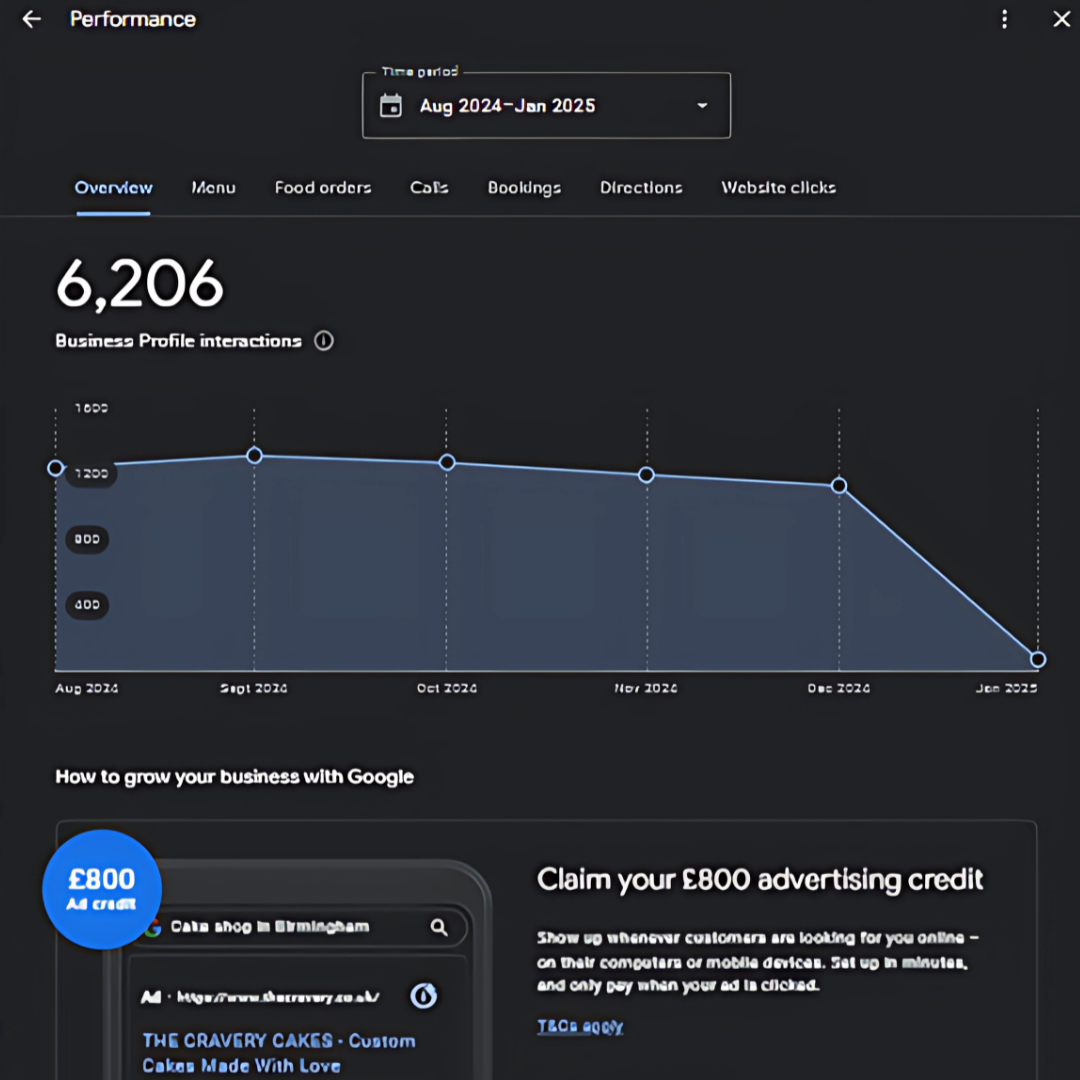
3. Monitor Google Business Profile Metrics
Your Google Business Profile (GBP) is a cornerstone of local SEO. GBP provides insights such as:
- Total searches where your profile appeared.
- Direct vs. discovery searches (searching for your business directly vs. finding it through a category or related terms).
- Actions taken (calls, website visits, requests for directions).
4. Measure Click-Through Rates (CTR)
A high CTR indicates your business is attractive to searchers. Track:
- Organic CTR from Google Search Console.
- Engagement with GBP listings.
5. Evaluate Customer Engagement
Engagement signals include:
- Time spent on your site.
- Pages per session.
- Bounce rate.
If engagement metrics are low, consider optimizing your site for mobile users and local intent.
6. Track Conversions
Conversions are the ultimate measure of success. Monitor actions such as:
- Online purchases or bookings.
- Contact form submissions.
- Phone calls are tracked through call-tracking software.
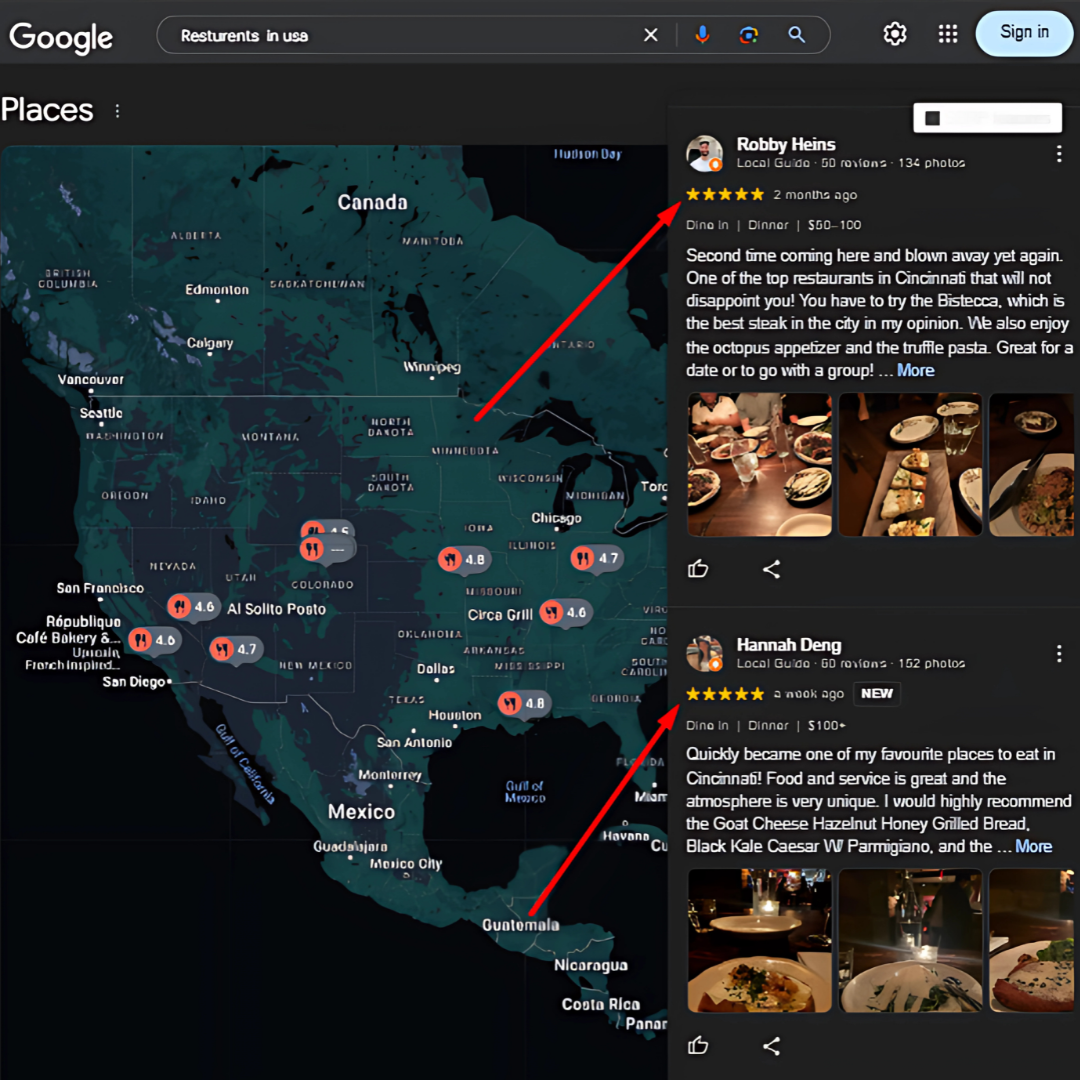
7. Monitor Online Reviews And Reputation
Online reviews are vital for local businesses. Keep an eye on:
- The volume and calibre of reviews on websites such as Google, Yelp and directories that are particular to a given industry.
- Responses to reviews, which impact customer perception and SEO rankings.
8. Assess Backlink Quality and Quantity
Local backlinks boost authority and visibility. Use tools like Ahrefs or Moz to analyze:
- Total backlinks from local websites.
- Referral traffic from those links.
9. Check Mobile Optimization
A mobile-friendly website is essential with bile-friendly website is necessary with most loc Test:
- Mobile usability through Google’s Mobile-Friendly Test.
- Page load times with tools like PageSpeed Insights.
10. Measure Social Media And Content Performance
Content marketing and social signals play a role in local SEO. Review:
- Engagement on locally-focused blog posts or social media campaigns.
- Shares, likes, and comments are tied to location-based content.
FAQ
1. How Can Local SEO Help My Small Business Compete With Larger Competitors?
Answer: Even with modest advertising expenditures, small businesses may drive foot traffic and targeted online visibility in their neighbourhoods by optimizing their presence for local searches. This will help them stand out in local search results.
2. Can I Optimize My Business For Multiple Locations?
Answer: Yes, you can optimize your GBP for multiple locations. Each location should have its profile, with tailored content, NAP details, and local keywords to ensure accurate representation and targeted local SEO for each area.
3. How Critical Are Local Reviews For My Business’s SEO?
Answer: Local reviews significantly influence local search rankings. Positive reviews improve trust, engagement, and your Google ranking, helping you attract more local customers and create a strong community reputation.
4. Can Social Media Impact My Local SEO Ranking?
Answer: Yes, active social media engagement signals to search engines that your business is involved in the community. Sharing local content, promotions, and events increases visibility.
5. Is There A Risk Of Over-Optimizing For Local SEO?
Answer: Over-optimizing can lead to keyword stuffing or unnatural content, harming your rankings. Instead, focus on a natural approach to integrating local terms, maintaining accuracy, and prioritizing customer experience over manipulation.
6. How Do Local Backlinks Benefit My Business?
Answer: Increased rankings and local credibility are the results of local backlinks from reputable community sources, which tell search engines that your company is trustworthy and pertinent to the area.
7. Should I Optimize My Website For Voice Search In Local SEO?
Answer: Optimizing for conversational keywords and local queries like “near me,” which are becoming increasingly common on mobile devices and smart speakers, can increase exposure for voice-based searches.
Conclusion
Small businesses can ensure long-term success in the cutthroat market by implementing affordable local SEO. This practice boosts visibility, establishes credibility, and connects with local clients. Implementing these best practices will help your small business thrive and connect with the right audience.
I trust you enjoyed this article about Local SEO For Small Businesses. Please stay tuned for more articles. Take care!
JeannetteZ
Want to Learn How to Build Your Own Home-Based Online Business and Start Making Money Online From Your Comfortable Couch?
Try Wealthy Affiliate!

Your Opinion Is Important To Me
Do you have thoughts, ideas, or questions? I would love to hear from you. Please leave me your questions, experiences, remarks, and suggestions about Local SEO For Small Businesses in the comments below. You can also email me at Jeannette@WorkFromAnywhereInTheWorld.com.
Disclosure
This post may contain affiliate links. I earn from qualifying purchases as an Amazon Associate and other affiliate programs. Please read my full affiliate disclosure.
You may also enjoy the following articles:
Wealthy Affiliate Coupons For Premium Memberships
Wealthy Affiliate Review – Scam or Legit? The Truth Exposed
An Insider Wealthy Affiliate Review
Unstoppable Pinterest Marketing Strategies To Skyrocket Traffic
Master Google Analytics Website Metrics
BigCommerce vs Magento: The Ultimate Showdown Of Strengths And Weaknesses
Facebook vs Instagram Ads: A Marketer’s Ultimate Guide To Success




